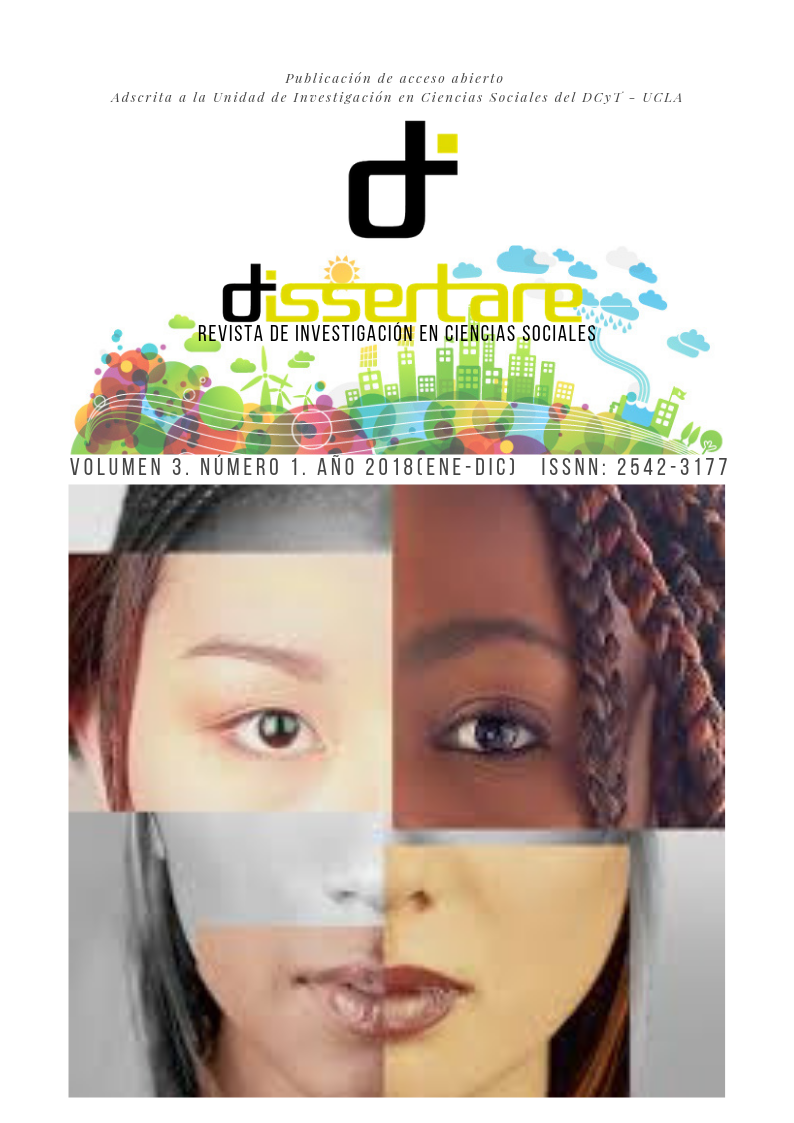Marianism and popular culture in venezuela (xx century)
Keywords:
Marianismo, devotion, popular cultureAbstract
Marianismo is a psychosocial and cultural phenomenon that started in Spanish America when the Virgin Mary, at the end of the 15th century and the beginning of the 16th century, became part of the identity of those peoples that were born or founded. From the socio-cultural standpoint, it is interesting to analyze this category present in Spanish-speaking peoples, as a religious phenomenon, within popular culture and to establish the relationship between devotion to Mary and Venezuelan popular culture in the 20th century, given the various Marian invocations in the country. The essay is approached from the perspective of the descriptive and retrospective method, in search of an approach to the historical process in which Marianismo and popular culture coexist and interweave. To this end, the work was based on the documentary review of the literature on the two thematic elements addressed, as a sustainable basis of the historical fact, to understand the social and cultural reality. It is concluded that Marianismo, as a socio-cultural phenomenon, retains an anthropological, spiritual and ecclesiastical vitality, forming part of the social reality of the nation, that is to say, it has validity in the daily life of Christian identity, in the practice of faith and in the cultural history of the country in the twentieth century, because religiosity, Marianismo and popular culture are connected to build a network of social, cultural and religious behaviors, which are part of the identity of the people.
Downloads
References
Bajtín, M. (2003). La cultura popular en la Edad Media y en el Renacimiento. Madrid, España: Alianza Editorial, S. A.
Casaleth, A. M. (2014). El catolicismo popular latinoamericano: entre la conquista y el seguimiento de Jesús. Trabajo de grado para optar al título de Licenciado en Teología. Universidad de San Buenaventura. Bogotá, Colombia.
Concilio Plenario de Venezuela (2004). La celebración de los misterios de la fe. Documento Conciliar nº 10.
Consalvi, A. (2002).Reflexiones sobre la historia de Venezuela. Caracas, Venezuela: Edición Xdemanda.
Consejo Episcopal Latinoamericano (C.E.L.A.M) (1979). III Conferencia del Episcopado Latinoamericano. Puebla, México.
Durkheim, E. (1968).Las formas elementales de la vida religiosa. Buenos Aires, Argentina: Editorial Schapire. S.R.L.
Escalada, X. (1978). Santa María Tequatlasupe. México, D.F., México: Imprenta Murgía.
García, S. (2003). Las Guadalupanas, la mexicana, hija de la española. Martínez, S. y Vera, R. Revista PROCESO, 1414. Recuperado de: http://www.proceso.com.mx/190664/las-guadalupanas-la-mexicana-hijade-la-espanola
Geertz, C. (1973).La interpretación de las culturas. Barcelona, España: Editorial Gedisa.
González O., E. (2006). Visión sociológica, fenomenológica y antropológica de la Virgen María. Ciclo Eortológico. ITER. Revista de Teología, 17(39), 41-64.
Larrain, J. (2003). El concepto de identidad. Famecos, 21, 30-42.
Lombardi, A. (2010). Venezuela Siglo XX. Revista de Artes y Humanidades UNICA, 11(1), 223-248.
Montecino, S. (1994). El marianismo y la cultura latinoamericana. Santiago, Chile: Ediciones CEDEM.
Núñez, D. y Sánchez, M. (2011) Antecedentes de la cultura popular tradicional o folklore en Venezuela. Revista Omnia, 17(1), 157-170.
Pastor, M (2010). El marianismo en México: una mirada a su larga duración. Cuicuilco, 48, 257-277.
Rojas, R. (1995). Historia social de la región de Barquisimeto en el tiempo histórico colonial, 1530–1870. Caracas, Venezuela: Biblioteca de la Academia Nacional de la Historia.
Rosales, B. (2011).Ciencias sagradas: ensayos (Teología). Córdoba, Argentina: Instituto Católico Superior.
Sánchez, A. G. (1976). Arquetipos y estereotipos religiosos: su impacto en las relaciones varón-mujer. En M. C. Elu de Leñero. (Ed), Perspectivas femeninas en América Latina (pp. 7-30). México, D.F., México: Secretaría de Educación Pública, Dirección General de Divulgación.
Silveira, M. (2011). Nueva búsqueda de la mariología popular latinoamericana. Aportes de la fisonomía de la mariología popular venezolana. Bogotá, Colombia: Universidad Javeriana. Instituto Teológico Internacional.
Stevens, E. (1973). Marianismo: the other face of machismo. En A. Pescatello. (Ed.), Famale and male in Latin America (pp. 3-17).Pittsburgh, Estados Unidos: University of Pittsburgh Press.
Telma, L. (2011). Devociones religiosas, procesos de identidad y relaciones de poder en Salta: desde la colonia hasta principios de siglo XX. Salta, Argentina. Fundación Capacitar del NOA.
.
Published
How to Cite
Issue
Section
Derechos del/de autor/es a partir del año de publicación
Esta obra está bajo la licencia:
Creative Commons Reconocimiento-NoComercial-CompartirIgual 4.0 Internacional (CC BY-NC-SA 4.0)
Las opiniones expresadas por los autores no necesariamente reflejan la postura del editor de la publicación ni de la UCLA. Se autoriza la reproducción total o parcial de los textos aquí publicados, siempre y cuando se cite la fuente completa y la dirección electrónica de esta revista. Los autores(as) tienen el derecho de utilizar sus artículos para cualquier propósito siempre y cuando se realice sin fines de lucro. Los autores(as) pueden publicar en internet o cualquier otro medio la versión final aprobada de su trabajo, luego que esta ha sido publicada en esta revista.





